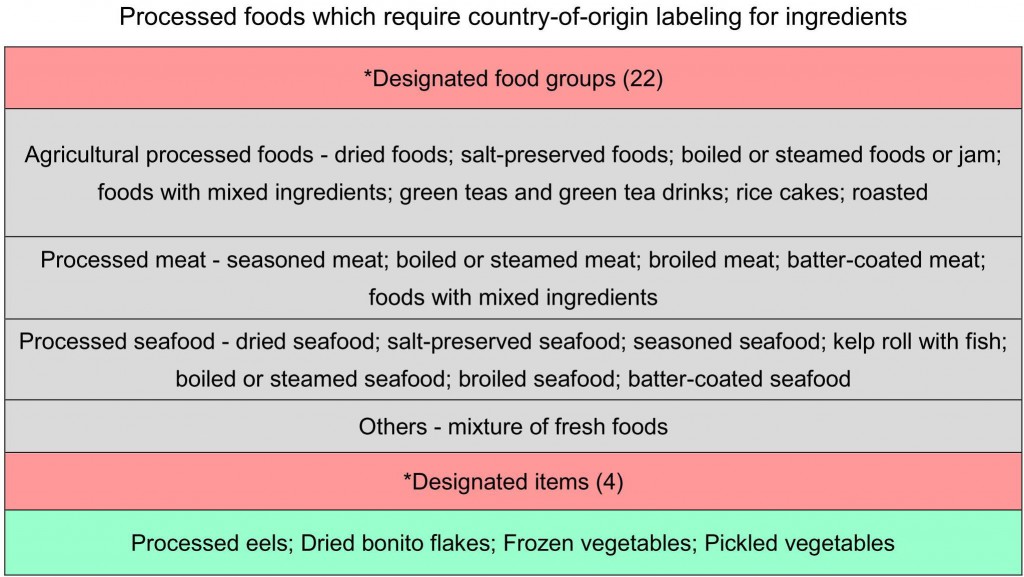 The Consumer Affairs Agency on Thursday, Nov. 12, began discussing increasing the number of processed foods which are required to display where their ingredients originated from, as imports of agricultural and other food items are expected to increase under the Trans-Pacific Partnership free-trade agreement. The measure is aimed at providing more information for consumers who prefer buying foods which use home-grown farm items as ingredients. However, authorities are likely to have difficulty deciding to what extent the requirements should be expanded, as processed food manufacturers will voice opposition to the idea which could lead to cost increases.
The Consumer Affairs Agency on Thursday, Nov. 12, began discussing increasing the number of processed foods which are required to display where their ingredients originated from, as imports of agricultural and other food items are expected to increase under the Trans-Pacific Partnership free-trade agreement. The measure is aimed at providing more information for consumers who prefer buying foods which use home-grown farm items as ingredients. However, authorities are likely to have difficulty deciding to what extent the requirements should be expanded, as processed food manufacturers will voice opposition to the idea which could lead to cost increases.
The agency officials, who revealed the policy at a meeting of the Liberal Democratic Party, explained that they hope to respond to consumers’ concerns over food safety along with the expected market liberalization under the TPP agreement. They said they will decide on the details based on opinions of outside experts and taking into consideration the feasibility of the measures. Foods offered at restaurants will be exempt from the labeling requirement, they said.
In line with the increase of agricultural imports, the government requires country-of-origin labeling on all fresh foods including fruits and vegetables. But as for processed foods, such labeling requirements on their ingredients is limited to 22 food groups including dried foods, rice cakes, green tea drinks and seasoned meat, plus four food products, such as pickled or frozen vegetables, which have their own labeling standards.
Meanwhile, imports of low-priced agricultural products which are used mainly as ingredients for processed foods are expected to rise as a result of tariff reductions and eliminations under the TPP agreement. Imports of food products processed abroad are also predicted to increase. Consumers who have doubts about the safety of some imported products and farmers who hope to differentiate their produce from foreign-made products have been calling for mandatory labeling on more processed foods, and such calls have grown louder since the TPP member countries concluded the talks. Similar opinions have also come from the ruling bloc.
Food manufacturers in general do not support the idea. They have objected to the expansion of mandatory labeling, saying it would lead to higher packaging and label printing costs. They have suppliers of food ingredients at home and in different countries and change them depending on prices and seasons, which means they would have to prepare several different kinds of labels. The agency officials said they will take into consideration the feasibility of expanding labeling requirements, and it is still unclear how the system will be changed.
The basic plan for food, agriculture and rural areas approved by the Cabinet in March states the need to address the issue of country-of-origin labeling requirements for ingredients of processed foods. Taro Kono, who became the minister in charge of consumer affairs in October, expressed support for expanding labeling requirements to more processed foods. “It is necessary to provide proper information to people who want to choose to buy domestically-produced products,” he said.
(Nov. 13, 2015)

